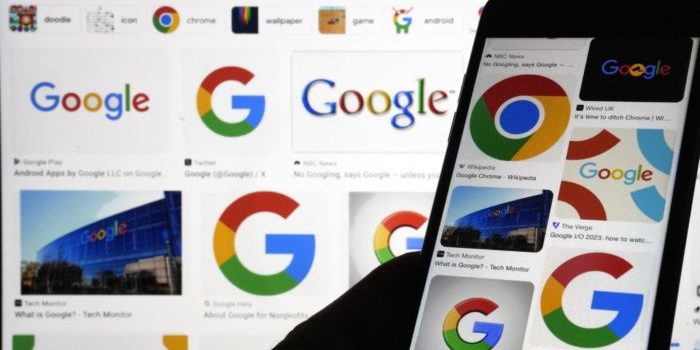(Headline USA) Skepticism remained high that the Biden Justice Department would, in good faith, seek to enforce the nation’s antitrust laws in a major case against Google, even as it fights elsewhere in court to defend its right to collude with Big Tech to censor U.S. citizens in violation of the U.S. Constitution.
To top it off, the case is being overheard by U.S. District Judge Amit Mehta, one of several Obama appointees in the D.C. District Court system who has become notorious for his corruption in the wake of the recent trials against Jan. 6 political dissidents.
Instead, all signs point to a show trial of sorts that will allow the DOJ to shake down the world’s most powerful website for a hefty settlement that may help foot the bill for its upcoming trials against former President Donald Trump—while ensuring that no actual consequence comes to the Democrat-friendly Google.
Mehta likely won’t issue a ruling until early next year. If he decides Google broke the law, another trial will decide what steps should be taken to rein in the Mountain View, California-based company.
Federal regulators nonetheless hyped Tuesday’s hearing not only as an attempt to dismantle Google’s internet empire but the biggest U.S. antitrust trial in a quarter century.
Over the next 10 weeks, federal lawyers and state attorneys general will try to prove Google rigged the market in its favor by locking its search engine in as the default choice in a plethora of places and devices.
However, the trial is unlikely to delve into Google’s curation of other information, such as news and politics, which have been proven to skew leftward, benefiting Democrats in several recent election cycles to the tune of millions of votes according to some estimates.
Top executives at Google and its corporate parent Alphabet Inc., as well as those from other powerful technology companies are expected to testify.
Among them is likely to be Alphabet CEO Sundar Pichai, who succeeded Google co-founder Larry Page four years ago. Court documents also suggest that Eddy Cue, a high ranking Apple executive, might be called to the stand.
The Justice Department filed its antitrust lawsuit against Google nearly three years ago during the Trump administration, charging that the company has used its internet search dominance to gain an unfair advantage against competitors.
Government lawyers allege that Google protects its franchise through a form of payola, shelling out billions of dollars annually to be the default search engine on the iPhone and on web browsers such as Apple’s Safari and Mozilla’s Firefox.
Regulators also charge that Google has illegally rigged the market in its favor by requiring its search engine to be bundled with its Android software for smartphones if the device manufacturers want full access to the Android app store.
Google counters that it faces a wide range of competition despite commanding about 90% of the internet search market. Its rivals, Google argues, range from search engines such as Microsoft’s Bing to websites like Amazon and Yelp, where consumers can post questions about what to buy or where to go.
From Google’s perspective, perpetual improvements to its search engine explain why people almost reflexively keep coming back to it, a habit that long ago made “Googling” synonymous with looking things up on the internet.
The trial begins just a couple weeks after the 25th anniversary of the first investment in the company—a $100,000 check written by Sun Microsystems co-founder Andy Bechtolsheim that enabled Page and Sergey Brin to set up shop in a Silicon Valley garage.
Today, Google’s corporate parent, Alphabet, is worth $1.7 trillion and employs 182,000 people, with most of the money coming from $224 billion in annual ad sales flowing through a network of digital services anchored by a search engine that fields billions of queries a day.
The Justice Department’s antitrust case echoes the one it filed against Microsoft in 1998. Regulators then accused Microsoft of forcing computer makers that relied on its dominant Windows operating system to also feature Microsoft’s Internet Explorer—just as the internet was starting to go mainstream. That bundling practice crushed competition from the once-popular browser Netscape.
Several members of the Justice Department’s team in the Google case—including lead Justice Department litigator Kenneth Dintzer—also worked on the Microsoft investigation.
Google could be hobbled if the trial ends in concessions that undercut its power. One possibility is that the company could be forced to stop paying Apple and other companies to make Google the default search engine on smartphones and computers.
Or the legal battle could cause Google to lose focus. That’s what happened to Microsoft after its antitrust showdown with the Justice Department. Distracted, the software giant struggled to adapt to the impact of internet search and smartphones. Google capitalized on that distraction to leap from its startup roots into an imposing powerhouse.
Adapted from reporting by the Associated Press

